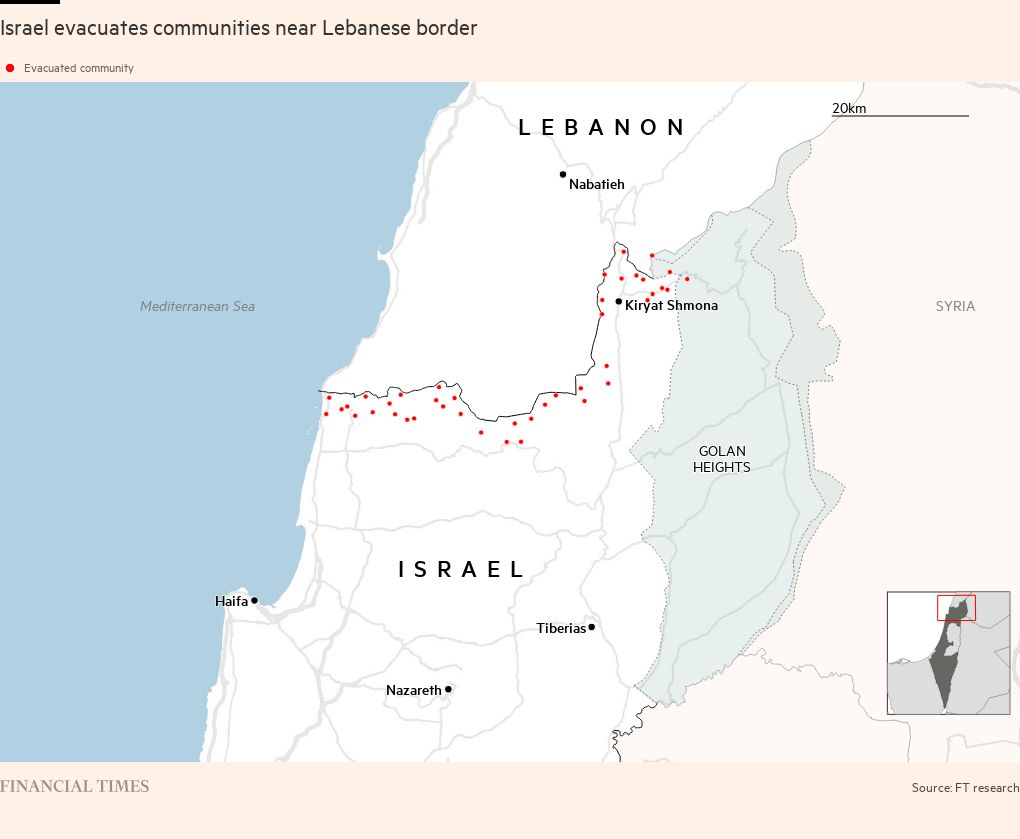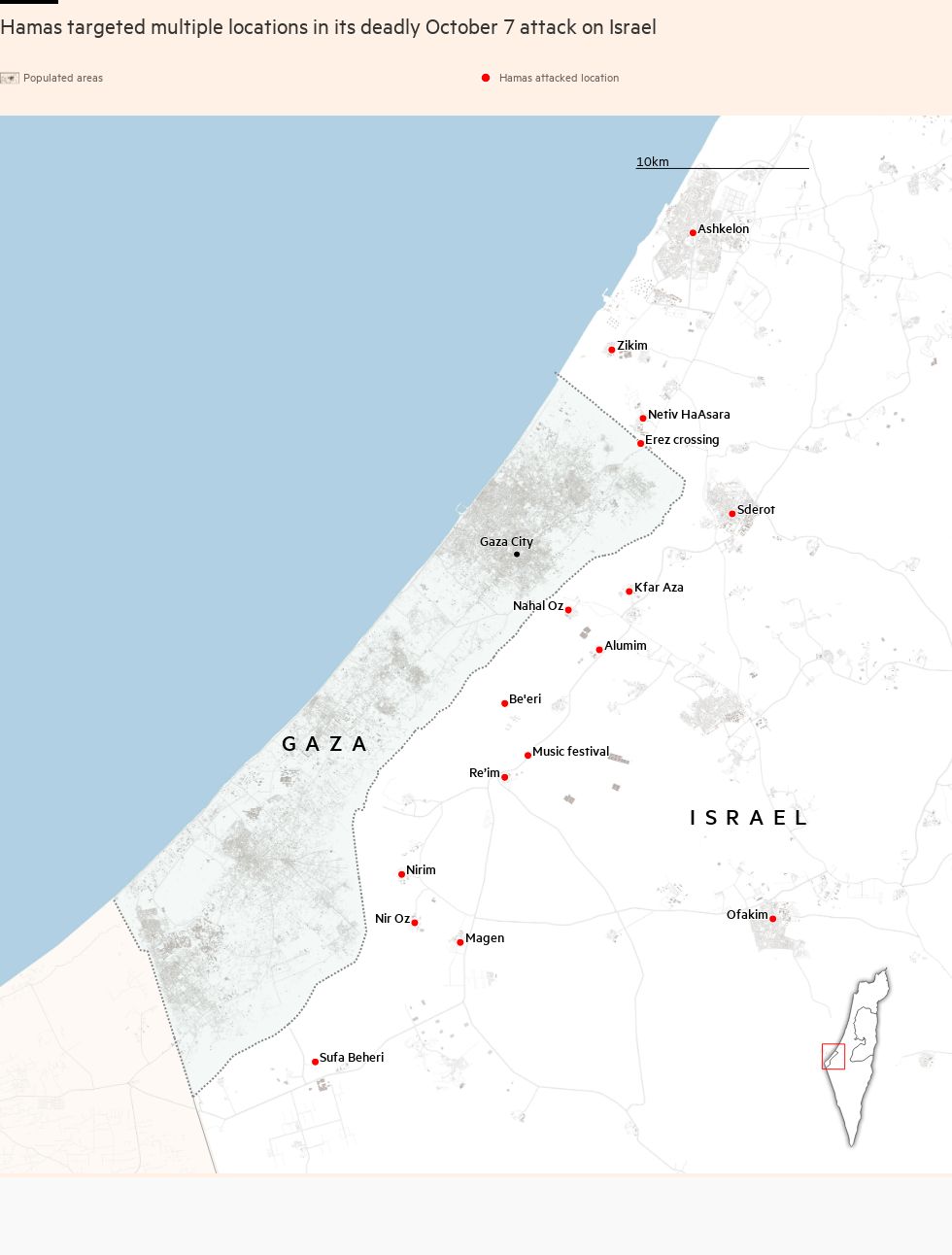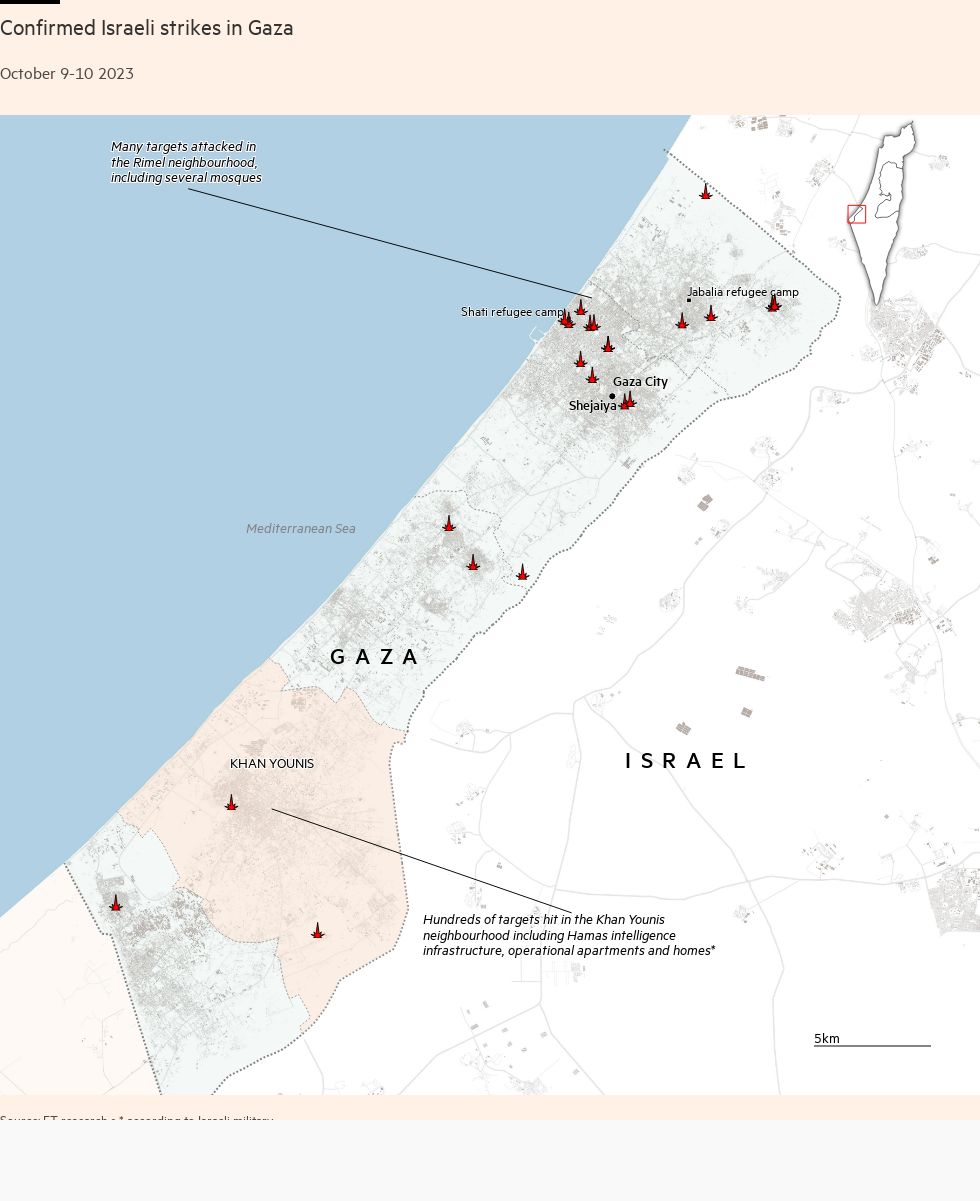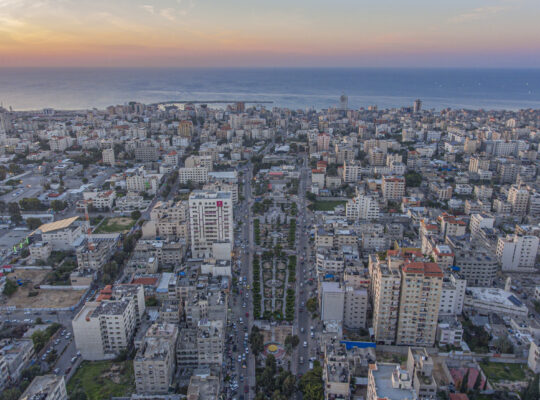Unlock the Editor’s Digest for free
Roula Khalaf, Editor of the FT, selects her favourite stories in this weekly newsletter.
Latest situation
Analysis of satellite imagery has revealed extensive damage across the coastal enclave. At least 30 per cent of all housing units in the Gaza Strip have been destroyed, rendered uninhabitable, or moderately or lightly damaged since October 7, according to Palestinian figures cited by the UN.
Satellite imagery has also captured Israeli military vehicles a short distance from the Gazan border.
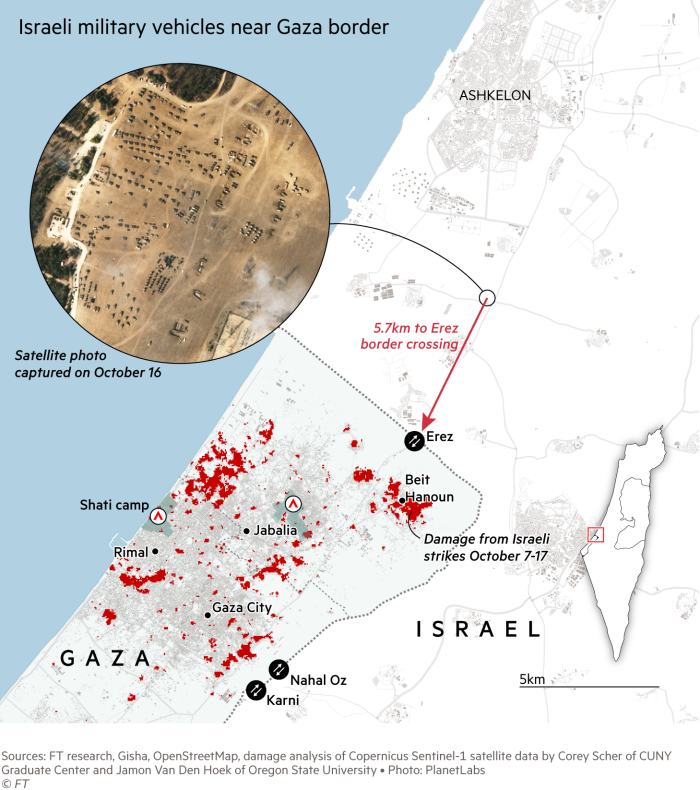
Israel’s military has ordered the evacuation of 42 communities along its northern border, where six Israelis have died in cross-border fire from Lebanon that Israel blamed on Hizbollah or Lebanon-based Palestinian factions.
Gaza’s sole power plant went offline on October 11 after it ran out of fuel, the outage captured by night-time satellite imagery.
The death toll of Israeli civilians and troops already surpasses that of the second intifada that lasted for five years in the early 2000s. Palestinian casualties have also mounted rapidly since Israel began its retaliatory air strikes.
Saturday 7 October — how events unfolded
As much of Israel slept, Hamas militants launched an unprecedented, multipronged dawn assault on the country from the Gaza Strip. The Middle East’s most powerful security force was caught off guard.
Launched on the Jewish holiday of Simchat Torah, the assault began in the early hours with thousands of rockets fired at Israeli towns and cities. The barrage set off warning sirens across the south and centre of the country, sending citizens fleeing to air-raid shelters.
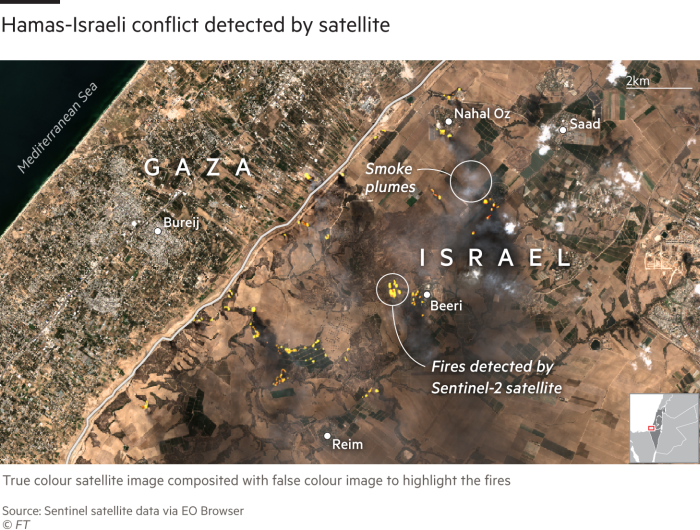
Israel’s military said Gaza-based militants launched more than 4,500 rockets over the weekend. Many were intercepted by Israel’s Iron Dome defence system, but satellite imagery showed fires and plumes of black smoke rising from some locations that had been hit.
Hundreds of Hamas fighters simultaneously attacked by land, air and sea, repeatedly breaching the fortified barrier between Gaza and Israel.
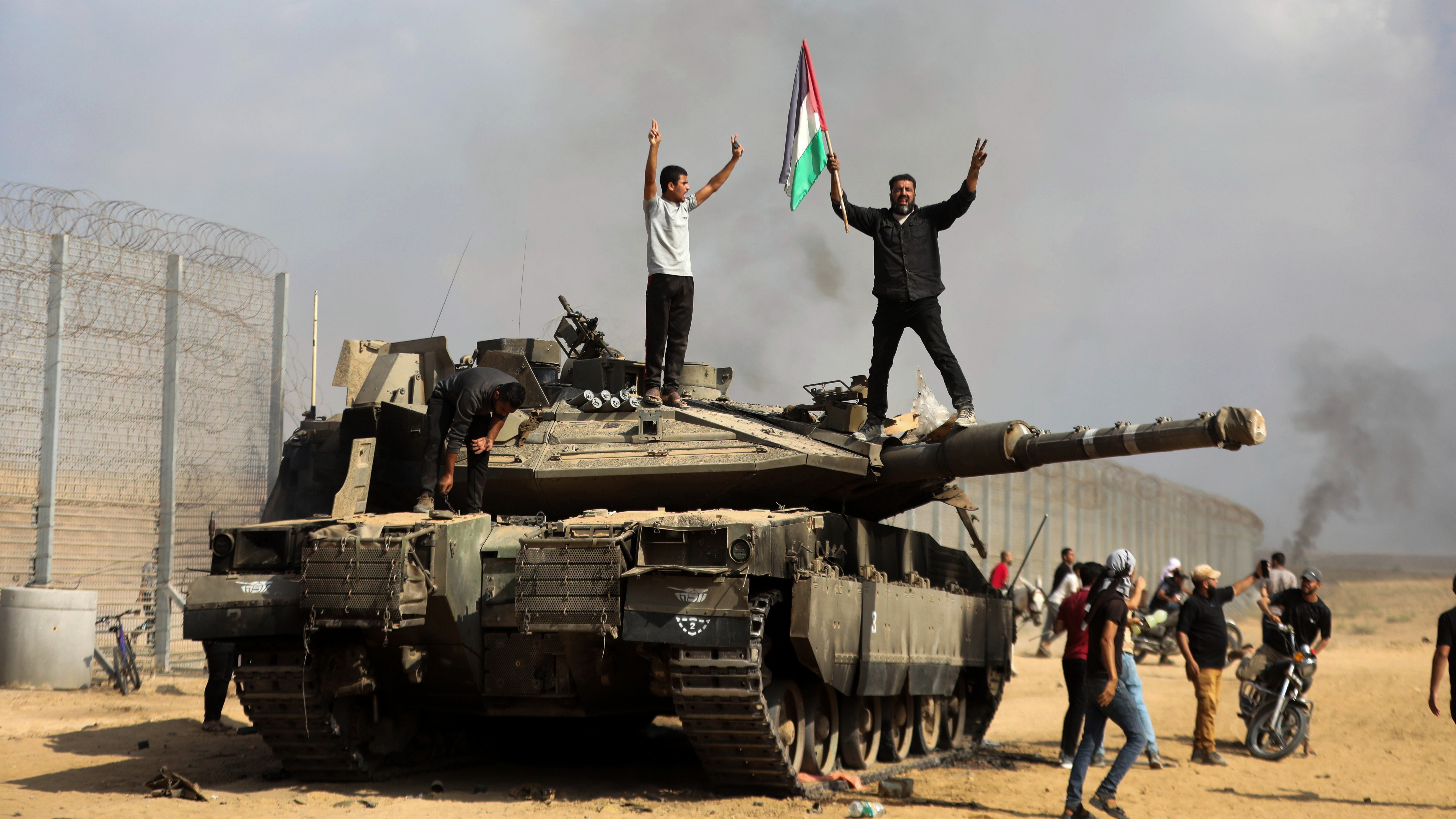
Images and videos showed motorbikes carrying armed militants riding through a hole in a wire fence along the border and a bulldozer destroying part of the barrier. Bombs, rockets and drones could also be seen blowing up the fence as well as defensive positions.
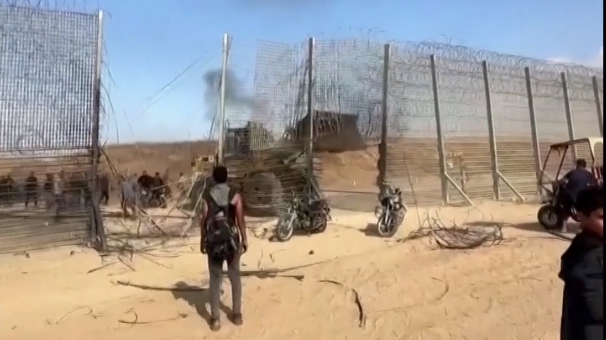
Militants used motorised paragliders to attack the Supernova music festival, not far from the Gaza border, flying in and turning the two-day rave into the site of a massacre.
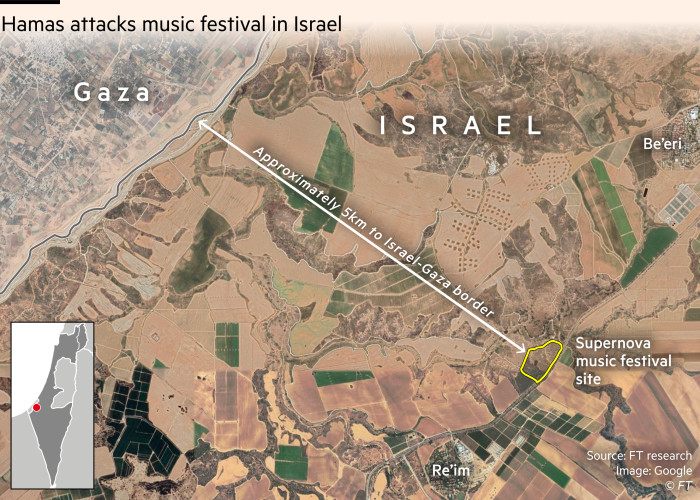
Gunmen chased young Israelis across the desert, shooting and snatching people to take back to Gaza as hostages. The Israeli military failed to respond for hours, apparently caught by surprise by the attack. Hundreds of bodies have been recovered from the site.
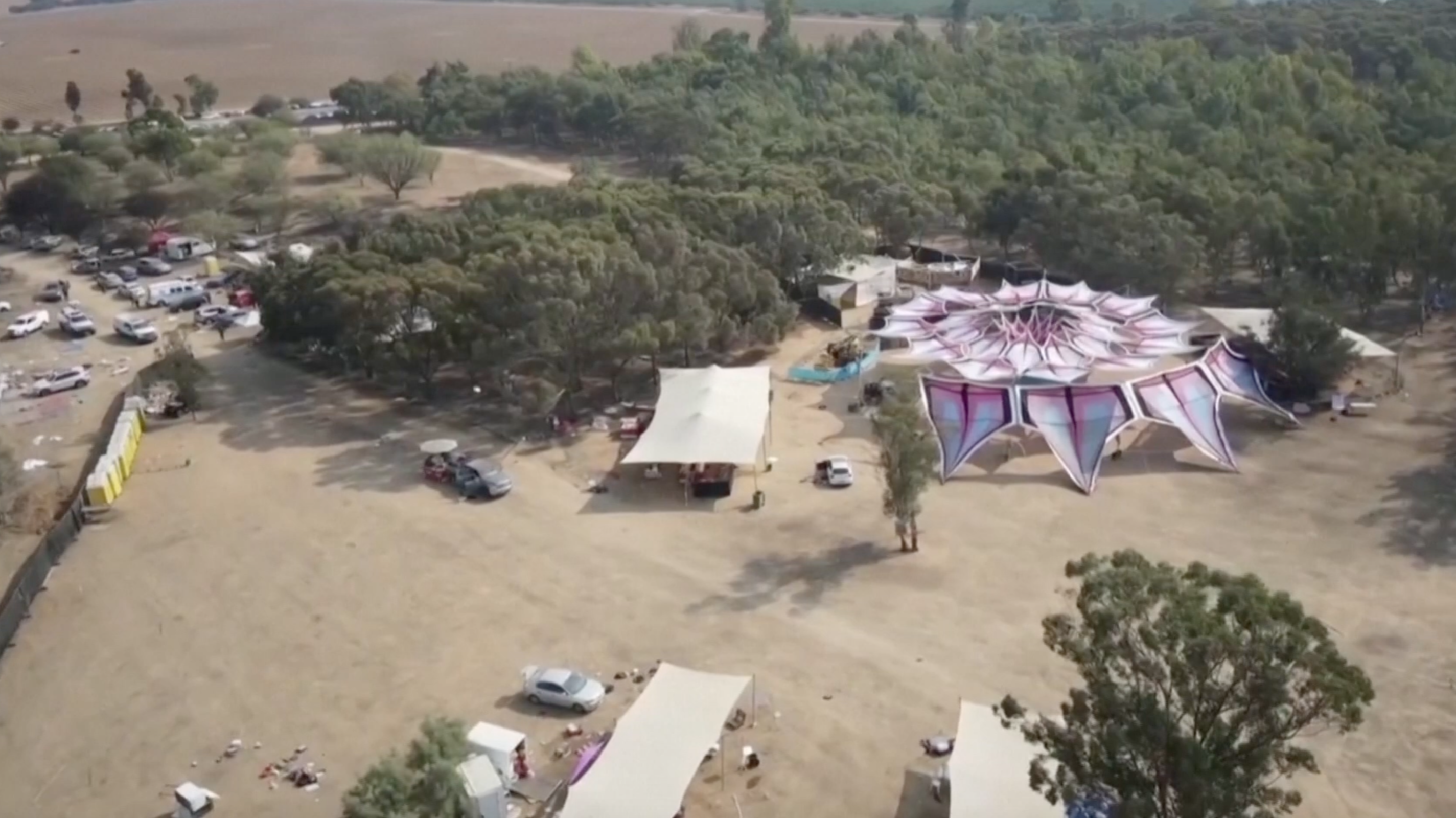
Attacks on Israeli cities
After breaching the Gaza fence, armed Hamas fighters began targeting Israeli communities at several locations, going door-to-door and taking hostages.
Images and video show people lying dead in the streets after execution-style killings and residents including women, children and the elderly being taken away.
The militants also attacked military sites.
More than 1,200 Israeli civilians and troops have died since Saturday with 2,700 wounded, the Israel Defense Forces said. It marked the deadliest attack on the country since its foundation in 1948.
Israel’s response
Israeli prime minister Benjamin Netanyahu imposed a “complete siege” on Gaza, calling up a record 300,000 reservists and ordering the strip to be pounded from the air.
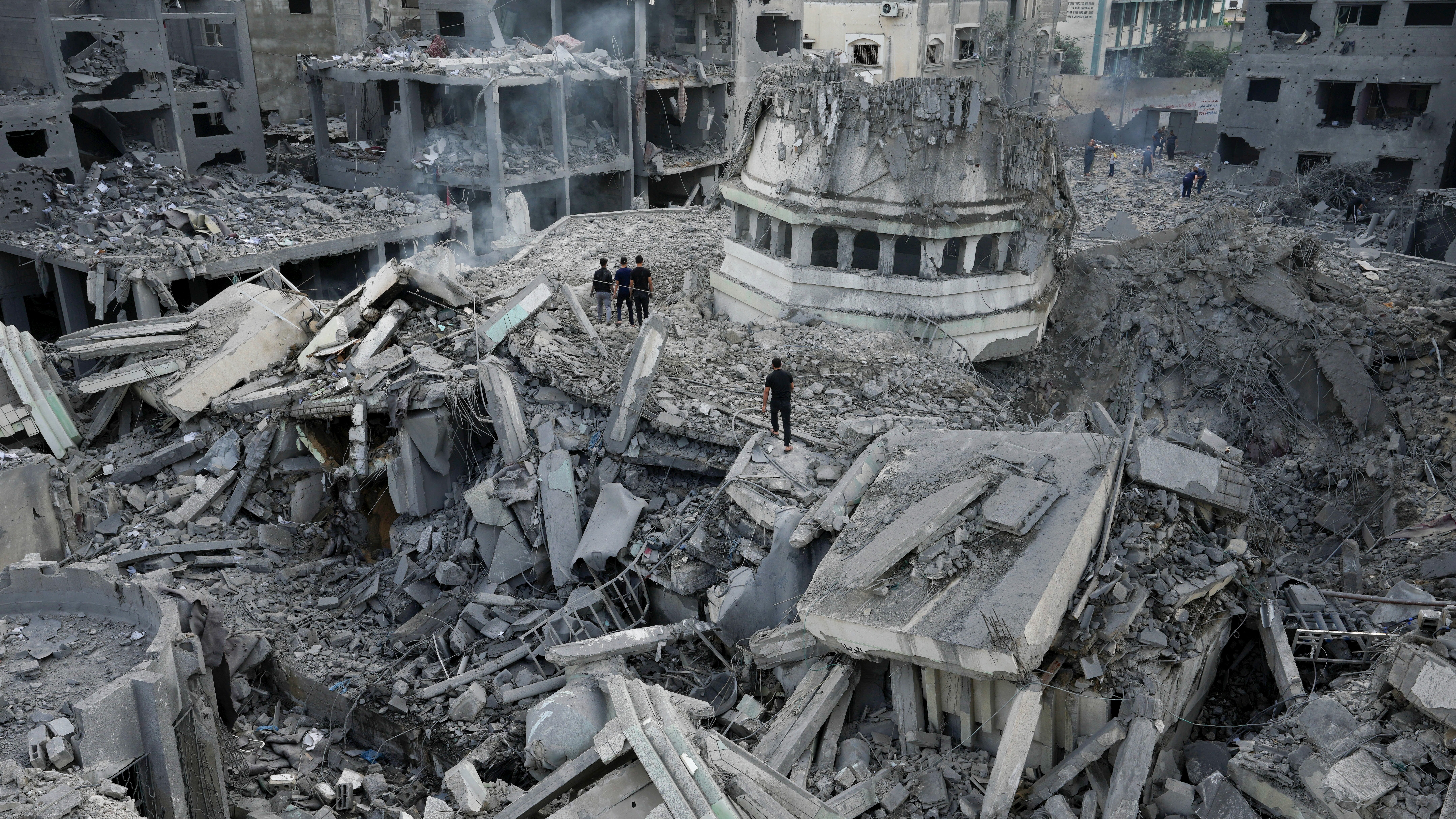
The complexity of the assault by Hamas is unlike anything Israel has witnessed in decades. It raises serious questions about the security service’s intelligence gathering and the military’s preparedness for an attack.
Visual and Data team: Peter Andringa, Steven Bernard, Chris Campbell, Sam Joiner, Lucy Rodgers and Alan Smith
Israel-Hamas war
Source link


